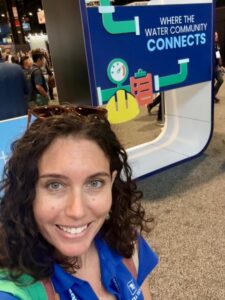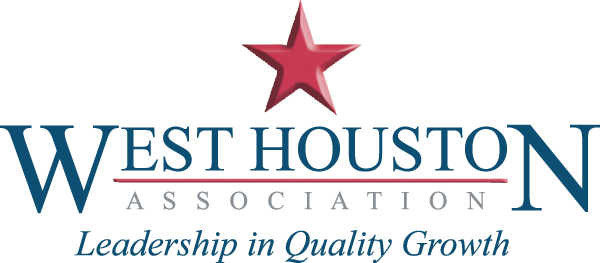The West Houston Association and Tetra Tech were well represented at the 2025 Water Environment Federation Technical Exhibition and Conference in Chicago, where Natalie Chaney, PE, ENV SP, Texas Stormwater and Sustainability Lead for Tetra Tech, and past Chair of WHA’s Sustainable Infrastructure Committee delivered a compelling presentation titled “Enhancing Sustainable Water Infrastructure: Communication Strategies and Partnerships.” Speaking to an engaged audience during a technical session, Chaney highlighted how strategic communication, stakeholder collaboration, and cross-sector partnerships can accelerate the development of sustainable water infrastructure. She used WHA’s work in Greater West Houston as a national example of how technical solutions can be strengthened when they are supported by clear messaging and meaningful engagement.

Chaney emphasized that addressing today’s water challenges requires more than engineering innovation. It also depends on building trust, shifting public perception, and making complex issues understandable to a broader audience. Drawing on WHA’s forums, roundtables, and recognition programs, she described how making water “visible” helps connect public understanding to long-term infrastructure investment. Through initiatives like the Sustainability Stars Program and recurring Water Resources Forums, WHA has shown how consistent communication can inspire action and foster collaboration.
Audience members were particularly interested in how WHA attracts participation from elected officials and key decision-makers, which is a challenge for many regions across the country. Chaney explained that WHA creates value for participants by positioning its events as collaborative platforms where local leaders, engineers, and planners work together to identify shared priorities and develop actionable solutions. She also pointed to the trust WHA has earned over decades of engagement as a critical factor in sustaining that involvement.
 Chaney closed by reminding attendees that successful infrastructure planning requires investing not only in pipes, pumps, and plants but also in the social and political structures that allow those systems to thrive. It is not enough to solve technical problems in isolation. Effective communication and collaboration must stand alongside engineering as equal partners in building resilient communities. One attendee summed it up best, noting that it is rare to see communication given the same weight as engineering, and that WHA’s example shows how powerful that combination can be. By sharing Houston’s collaborative model on a national stage, WHA and Tetra Tech helped shape the conversation about what it takes to build a truly sustainable water future.
Chaney closed by reminding attendees that successful infrastructure planning requires investing not only in pipes, pumps, and plants but also in the social and political structures that allow those systems to thrive. It is not enough to solve technical problems in isolation. Effective communication and collaboration must stand alongside engineering as equal partners in building resilient communities. One attendee summed it up best, noting that it is rare to see communication given the same weight as engineering, and that WHA’s example shows how powerful that combination can be. By sharing Houston’s collaborative model on a national stage, WHA and Tetra Tech helped shape the conversation about what it takes to build a truly sustainable water future.
